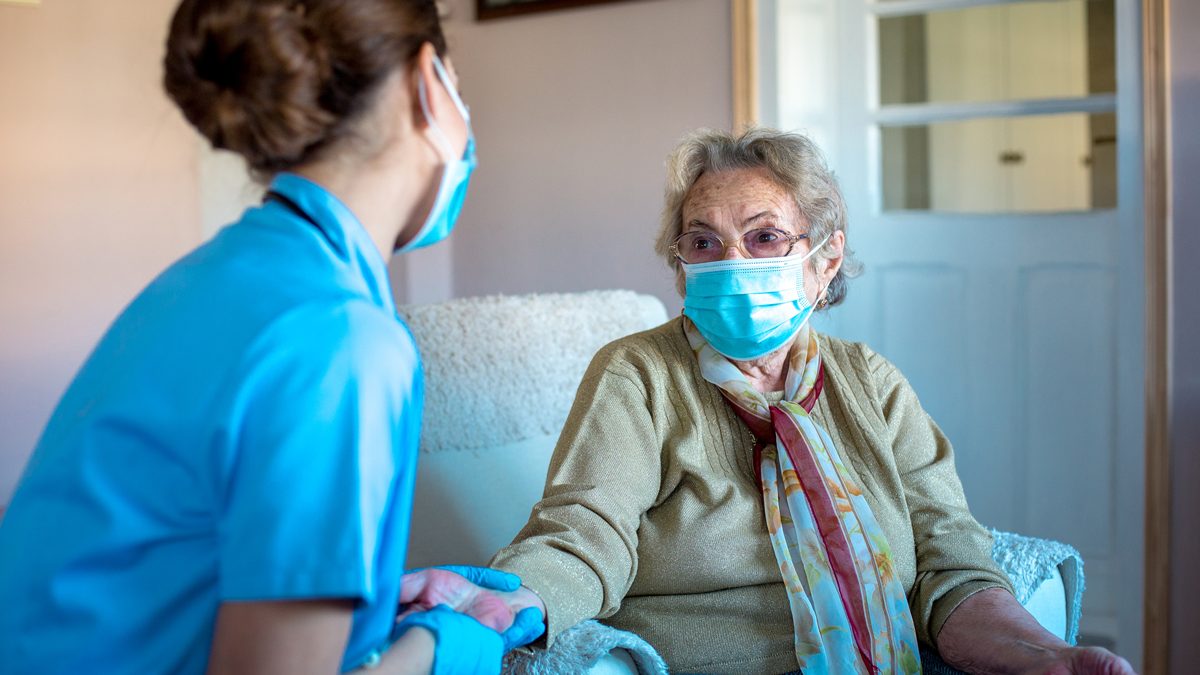Make locally led public health ‘business as usual’, says report

COVID-19 proved the value of locally led, place-based public health – but teams need long-term funding and support if they are to take their place as an essential cog in the ICS machine.
Local public health teams have been acting as “linchpins” during the pandemic, building cross-sector relationships to respond to the immediate crisis, as well as addressing the associated social determinants of health.
They now have a “unique opportunity” to play a central role within the integrated care systems (ICSs) and place-based partnerships currently being established across England.
That’s according to a new report from The King’s Fund and The Health Foundation, which looked at the role of directors of public health (DsPH) in 2020, and how healthcare systems can use this information to prepare for future crises.
In a foreword to Directors of public health and the Covid-19 pandemic: A year like no other, Dr Jo Bibby, Director of Health at The Health Foundation, said: “As the full extent of the COVID-19 pandemic began to unfold in April 2020, it became clear that for those working in public health, this was to be a career‑defining experience.
“At the heart of the response – building the plane in mid-air – a few public health professionals were making decisions by the minute that were shaping the experiences of the many. Making essential services safe, protecting the vulnerable and doing their best to contain the virus.”
This “real-time” learning has emerged as a “vital body of knowledge”, she added.
Pandemic response linchpin
To compile the report, The King’s Fund conducted 58 interviews with DsPH and other leaders working at a local, regional, and national level across the UK. They found there were two key aspects of DsPH involvement in the pandemic response.
“First was their formal role in the local public health system; they helped guide and shape the response within regional and local emergency structures and committees.
“Second was the striking role that DsPH played more broadly in engaging local communities, facilitating vital social support, and acting as a linchpin within the broader response,” said the authors.
Public health teams have been involved in a wide range of activities. They have worked with care homes, schools, businesses, and community groups, and have established and commissioned new interventions to support local people and meet local needs.
This work has included tackling the wider social determinants of health that lead to health inequalities. Most DsPH interviewed, for example, noted that unemployment – and therefore food insecurity – was a serious risk.
“Many teams have been involved in mapping need and increasing capacity to meet demand through foodbanks or coordinating the delivery of food parcels and the collection and delivery of medical prescriptions alongside partners in the VCS and volunteers,” said the report.
Other targeted interventions have included supporting local Chinese communities receiving COVID-related abuse, helping Travellers to isolate after contracting the virus, and engaging with community leaders to ensure hard-to-reach communities had trusted health information.
Common challenges
The work also highlighted the common challenges public health teams faced, such as workforce shortages, and a lack of engagement from central government – most notably around the NHS Test and Trace system.
In addition, the COVID response has left pre-existing short-staffed teams with little time to do anything else. There has, the report said, been no resource for “business as usual”, and the implications are rising mental health needs and widened inequalities.
“This highlights the need to remember that while Covid-19 is a serious threat to health, it is far from the only threat that DsPH need to have on their radar, and there is a significant risk that DsPH have not had sufficient ‘bandwidth’ or resources to address or plan for this,” said the report.
And while emergency funding has been made available, its short‑term nature has created uncertainty about solutions for tackling the “longstanding challenges in the public health system”.
“COVID-19 funding windfalls” are not a suitable long-term funding model, said the report. “What is required is a government commitment to increased and sustainable long-term funding – at least an extra £1 billion a year for the public health grant, and multi-year funding.”
Investment in the workforce is also sorely needed say DsPH, who say they are facing significant difficulties recruiting specialist staff.
DsPH, ICS, and the future of public health
The economic, social, and health fallout of COVID-19 will be felt for decades and will compound the healthcare system’s pre-existing challenges.
As this new report shows, locally led public health teams have a vital role to play in coordinating, facilitating, and delivering services and interventions that cross sector lines, address health inequalities, and tackle local needs – the stated aims of the shift to ICS and place-based care.
“As the health and care system moves towards ICS, public health’s role in them needs to be fully recognised and embedded,” said the report. That means ensuring that ICS work fully with DsPH and their teams and do not develop in parallel, it added.
The pandemic has highlighted just how much DsPH can contribute to strategic, local beyond their specific role, not only through their direct expertise but also through their strong relationships.
“The opportunity has never been so prominent for DsPH and public health teams to translate the recognition gained during the pandemic into ‘business as usual in the aftermath,”
About the author

Amanda Barrell is a freelance health and medical education journalist, editor and copywriter. She has worked on projects for pharma, charities and agencies, and has written extensively for patients, HCPs and the public












